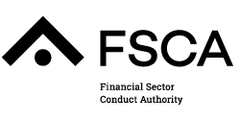FSCA or the Financial Sector Conduct Authority is an autonomous regulatory entity in South Africa in charge of licensing and regulating Forex brokers, commercial banks, cooperative financial institutions, collective investment schemes, insurance companies, retirement funds, and so on within its legal jurisdiction. FSCA, established in 2017, is to oversee all the participants of financial markets to promote South Africa as a safe and secure financial center. Additionally, the organization is empowered to regulate key individuals, representatives, as well as outsourcing arrangements of said institutions in terms of their actions and activities in the financial markets. It is worth noting that the Minister of Finance has, under the Financial Sector Regulation Act, the authority to oversee the regulatory framework of FSCA in certain cases. The Minister of Finance also appoints the FSCA Commissioner and Deputy Commissioners. FSCA became the successor of the former Financial Services Board (FSB) as of April 2018 and accepted not only the old responsibilities of FSB but also received new guidelines of its own. For example, under the Conduct of Financial Institutions (COFI) Act, FSCA is responsible for sector-specific laws. Other important Acts that massively dictate FSCA’s direction are the Financial Markets Act and the COFI Act. FSCA must adhere to its regulatory framework when it comes to intervening in matters related to regulated entities and institutions including investigatory, disciplinary, and preventive measures. In the event of financial misconduct and illegal activities such as the Ponzi scheme, FSCA steps in immediately to do whatever is required to protect the market as well as its participants. Moreover, the FSCA, the National Payment System Department (NPSD) of the South African Reserve Bank, and the National Treasury collaborate for further development of this organization.
FSCA is also to commit to the periodical reviews done by the Financial Sector Assessment Program (FSAP); an appraisal done by the International Monetary Fund (IMF) to estimate the overall stability of the financial system, pinpoint risky areas, and enhance its flexibility in the face of setbacks. As a new and more improved regulatory organization, FSCA seeks to build and transform itself, create a solid framework based on fair dealing practices, educate the consumers, boost the financial markets, and search for innovative ways to serve its duties. To keep up with the international standards, FSCA also cooperates with known and reputable entities such as the International Organization of Pension Supervisors (IOPS), the International Association of Insurance Supervisors (IAIS), the International Actuarial Association (IAA), the International Organization of Securities Commissions (IOSCO), and the Committee of Insurance, Securities and Non-Banking Financial Authorities (CISNA).
Memorandum of Understanding (MoU)
Under the FSR Act and the signed MoU between the FSCA and Prudential Authority (PA), the two parties are to work side by side to cover their responsibilities such as regulatory strategies, supervisory on-site/off-site inspections and investigation, as well as licensing financial institutions to the best of their abilities.
FSCA is responsible for reviewing and regulating the activities of non-life insurers, banks, Forex brokers, collective investment schemes, retirement funds, investment managers, financial advisers, and other financial intermediaries. FSCA’s approach towards its objectives is preemptive, proactive, risk-based, and proportional in nature. FSCA tries to identify the risks that could potentially threaten the integrity of the markets and its participants before they get out of hand. To fulfill its principal responsibilities, e.g., protection of consumers and providers alike, FSCA also attempts to eliminate all the obstacles in the way of performing its duties within the scope of its regulatory authority. FSCA is to act in favor of financial markets and its participants by promoting South Africa as a sound and stable financial center. Moreover, the organization is to make certain that all the customers receive fair treatment from their respective Financial Service Providers (FSP) and are well-informed for their own protection.












